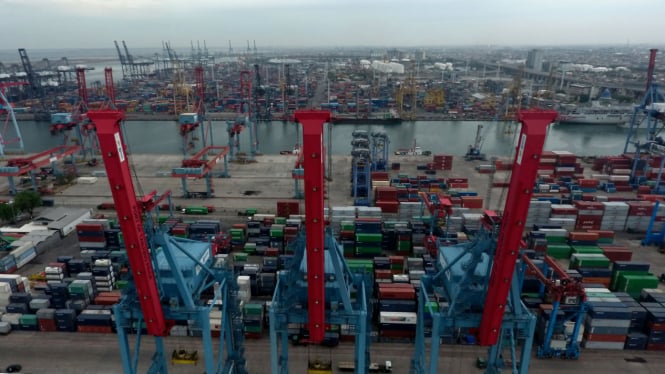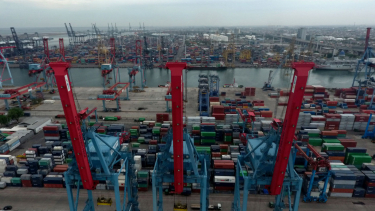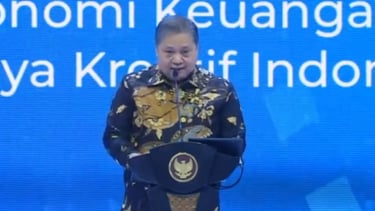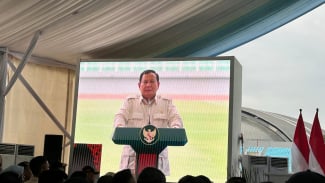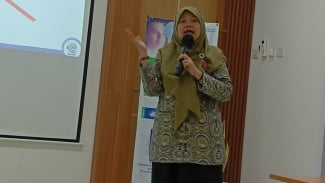Indonesia's Economy Expands Faster than China and South Korea
- VIVA/Muhamad Solihin
Jakarta, VIVA – Coordinating Minister for Economic Affairs Airlangga Hartarto said Indonesia's economic growth in the second quarter of 2024 which amounted to 5.05 percent on an annual basis (year on year/yoy) was still better than other countries such as China and South Korea.
Indonesia's economic growth is still higher than China which recorded 4.7 percent (yoy), Singapore (2.9 percent), South Korea (2.3 percent), and Mexico (2.24 percent).
"Amid global uncertainty, our economic fundamentals are still good and in the second quarter we grew 5.05 percent," Minister Hartarto said on Monday.
The minister explained that the achievement of Indonesia's economic growth in the second quarter of this year was supported by almost all sectors, especially from the household consumption sector.
Menteri Koordinator Bidang Perekonomian, Airlangga Hartarto, di acara Festival Ekonomi Keuangan Digital dan Karya Kreatif Indonesia (FEKDI x KKI) di JCC Senayan, Jakarta, Kamis, 1 Agustus 2024
- VIVA.co.id/Mohammad Yudha Prasetya
Household consumption contributed 54.53 percent to economic growth or grew 4.39 percent (yoy). It's still the largest source of growth at 2.62 percent, which is mainly driven by religious holiday celebrations.
"Then positive government consumption, Gross Fixed Capital Formation (PMTB), exports of goods and services, and imports of goods and services (positive)," Minister Hartarto stated.
Then the next highest source of growth was Gross Fixed Capital Formation (PMTB) which contributed 1.32 percent, government consumption 0.10 percent, and net exports 0.25 percent. In general, all components of expenditure experienced positive growth.
Furthermore, Consumption Expenditure of Nonprofit Institutions Serving Households (PK-LNPRT) grew by 9.98 percent. This component contributed 1.32 percent to overall GDP.
Exports and imports also experienced quite high growth, at 8.28 percent and 8.57 percent respectively. The increase in exports was driven by an increase in the value and volume of oil and gas and non-oil and gas exports, while the increase in imports was driven by an increase in imports of raw and auxiliary materials.
Meanwhile, PMTB grew by 4.43 percent and government consumption grew by 1.42 percent.
Minister Hartarto said, in terms of business fields, Indonesia's economic growth was still supported by the processing industry which grew 3.95 percent (yoy).
"The agricultural sector also surged. It jumped to 3.25. Construction also grew high at 7.29 percent, then mining, logistics and warehousing and transportation also approached 10 percent, namely 9.56 percent," he concluded.


